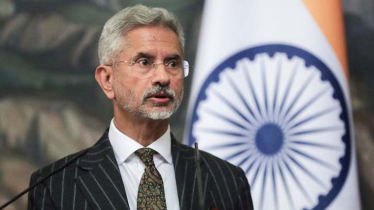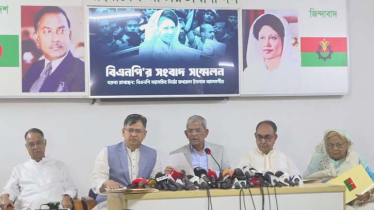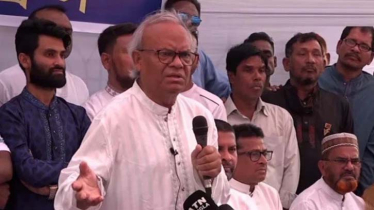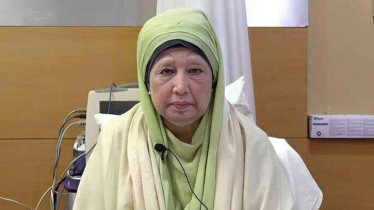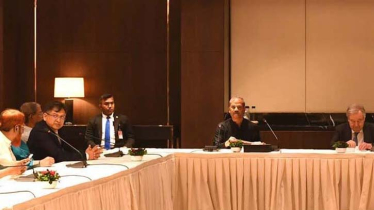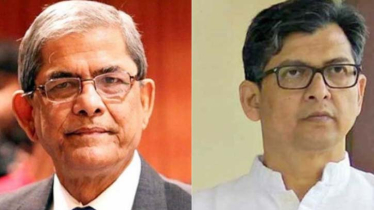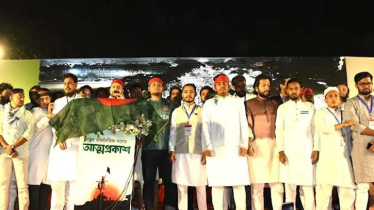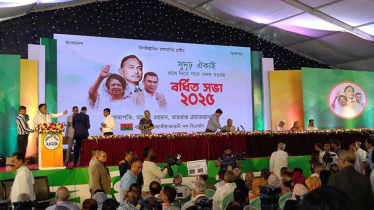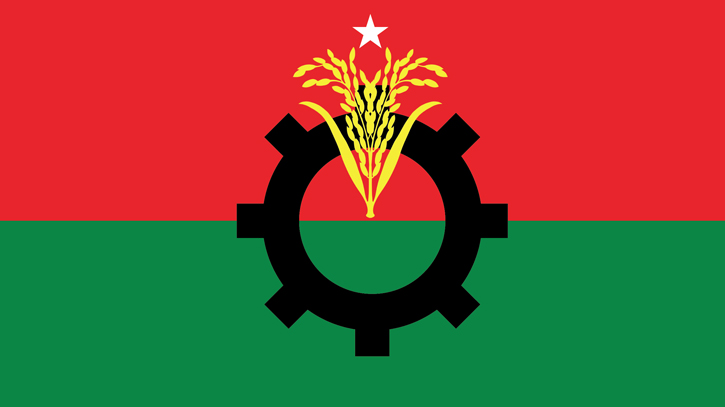
Photo: Collected
After the parliamentary elections, BNP finds itself grappling with a myriad of challenges regarding the execution of its post-election program. Despite initially announcing a robust plan to swiftly enter the political arena following the elections, the party later retracted from this stance. BNP is not only contending with organisational capacity questions but is also facing internal crises stemming from the failure to rigorously implement its planned program.
In response to these challenges, BNP has initiated discussions with like-minded parties to chart a course for its post-election strategy. Sources within the party indicate that, until there is clarity from Western countries regarding the current government, BNP intends to adhere to its regular program.
Contrary to external perceptions, party leaders assert that there is no crisis in formulating their program. They emphasise that the program will be developed through extensive consultations within the party and in collaboration with like-minded political entities.
Historically, BNP and allied parties implemented a series of protests, including a 24-day blockade spanning 12 stages and a 6-day strike encompassing 5 stages. These actions were initiated following clashes with the police during a mass rally on October 28 of the previous year, coupled with subsequent announcements of the electoral schedule. However, these programs failed to garner significant public response. Despite initially advocating resistance to the elections, the party later reversed its stance, ultimately boycotting the polls on December 20. BNP called for non-cooperation from the government and urged the general public to participate in a non-cooperation movement.
The ruling Awami League government successfully conducted the election on January 7, overcoming various challenges. In the aftermath of the election, BNP initially declared a stringent program, including hartals and blockades. However, there has been a noticeable shift in the party's post-election stance.
Contrary to the earlier announcement of a strict program, BNP has withdrawn from the position of implementing such measures. Instead, the party is presently engaged in alternative activities, such as the distribution of leaflets expressing gratitude to the general public who chose to boycott the election.
The party has initiated meetings with like-minded parties since Tuesday to formulate a strategy for the upcoming days. These discussions have covered various steps, including the release of activists who were arrested in the past few months. A decision has been made to swiftly pursue measures to secure bail for those who have been detained. Additionally, there is a current focus on mass communication programs, with the party opting for a less disruptive approach for the time being.
During the meeting between the BNP High Command and leaders of smaller parties, doubts were expressed about the feasibility of implementing stringent programs in the current situation. The leaders of these smaller parties raised concerns, possibly reflecting a cautious sentiment prevalent among like-minded political entities. Moreover, the recent roles of BNP leaders in the field have been a subject of discussion, indicating a comprehensive review of the party's overall strategy and engagement with the evolving political environment.
According to various sources within BNP and among like-minded parties, BNP leaders hold the belief that the West, including the United States, the United Kingdom, and the United Nations, has expressed concerns regarding the one-sided nature of the recent election. Notably, the United States has already imposed visa bans in response to perceived shortcomings in Bangladesh's electoral process.
If there is a swift and robust response from Western nations, BNP leaders suggest that the party will adopt a different course of action. On the other hand, if the response from the West is more measured or delayed, BNP is inclined to stick to its regular program.
Trinamool leaders have voiced concerns about BNP's perceived lack of decisiveness in not implementing a strict post-election program after choosing to boycott the elections. Jahangir Hossain, the President of BNP Ward No 9 in Jashore's Manirampur, expressed his reservations to The Messenger, stating, "After October 28, the party did not organise any programs in the capital, not even for a day. Even after the election, they failed to articulate a concrete program. I am reluctant to speculate on the reasons behind their hesitation."
BNP Standing Committee member Begum Selima Rahman clarified to The Messenger, stating, "There is no crisis in formulating the party's program." She emphasised that consultations are underway with like-minded parties who are concurrently engaged in activism with BNP. According to Rahman, new programs are in the pipeline, and the party is committed to avoiding arbitrary decisions.
Mirza Fakhrul gets bail in 9 cases
The court has approved bail for BNP Secretary General Mirza Fakhrul Islam Alamgir in nine separate cases of sabotage filed at Paltan and Ramna police stations in the capital. These cases include three from Ramna police station and six from Paltan police station. The order was issued by Dhaka Additional Chief Metropolitan Magistrate Sultan Sohag Uddin following a court hearing on Wednesday.
Mirza Fakhrul's lawyer, Syed Zainul Abedin Mejbah, verified this information to the media, indicating that the court granted bail after reviewing the details of the cases.
Syed Zainul Abedin Mejbah, revealed that the court has granted bail to his client on a bond of Tk 10,000 in nine separate cases from Paltan and Ramna police stations in the capital. However, despite the bail approval, Mirza Fakhrul is not being released immediately, as his bail remains pending in two additional cases from Ramna and Paltan police stations.
It was previously scheduled for the court to hear Mirza Fakhrul's bail application on Tuesday (January 9) after fixing the date on December 31. However, he was apprehended on the same day, leading to the rescheduling of the bail hearing for Wednesday.
The High Court has recently instructed the Chief Metropolitan Magistrate (CMM) of Dhaka to accept and process the bail application in nine separate cases related to the BNP rally on October 28. These cases were filed in Ramna and Paltan Police Stations of the capital. Mirza Fakhrul Islam Alamgir had filed a writ petition on December 14, seeking guidance to resolve the bail applications concerning cases from Ramna and Paltan police stations in Dhaka. The writ encompasses a total of 10 cases, with seven from Paltan police station and three from Ramna police station.
The High Court's directive emphasises the need for the Chief Metropolitan Magistrate to accept and handle the bail applications in accordance with the law.
Messenger/Sun Yath

